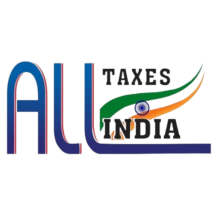One Person Company registration in India is a concept introduced under the Companies Act 2013. It allows a single individual to incorporate a company and enjoy the benefits of both a sole proprietorship and a company. This concept was available after the enforcement of the Companies Act 2013
To be eligible to register a One Person Company (OPC) in India, an individual must be an Indian citizen and a resident of India, meaning they have lived in India for at least 182 days in the previous financial year. Only one person can be the sole member and nominee of an OPC, and they cannot form or be part of more than one OPC at a time. An OPC is ideal for solo entrepreneurs who want the benefits of limited liability and a formal business structure, but it is restricted to businesses with turnover under ₹2 crore annually.
To register a One Person Company (OPC) in India, start by obtaining a Digital Signature Certificate (DSC) and a Director Identification Number (DIN) for the sole member. Choose a unique name and apply for name approval with the Ministry of Corporate Affairs (MCA) using Form SPICe+ (Simplified Proforma for Incorporating Company Electronically). Next, draft the Memorandum of Association (MOA) and Articles of Association (AOA), specifying the company’s objectives and operational guidelines. Submit these documents along with Form SPICe+, the PAN, and TAN applications. Upon approval, the OPC will receive a Certificate of Incorporation from the Registrar of Companies (ROC).
No, a person cannot be a member of more than one One Person Company (OPC) at any given time in India. The law restricts individuals from incorporating or holding memberships in multiple OPCs to maintain the OPC’s unique, single-owner structure.
A One Person Company (OPC) offers several benefits, making it ideal for solo entrepreneurs. First, it provides limited liability protection, meaning the owner’s personal assets are safeguarded from business debts. OPCs also enjoy separate legal status, allowing them to hold assets and enter contracts independently. Additionally, compliance requirements are less complex compared to other corporate structures, reducing administrative burdens. OPCs can also access bank loans and government incentives more easily than sole proprietorships. Finally, OPCs enable easier business continuity since ownership can be passed to a nominee in the event of the owner’s incapacitation or death.
To register a company in India, several documents are required. Below is a list of essential documents typically needed:
Director Identification Number (DIN) and Digital Signature Certificate (DSC): Required for all proposed directors.
Proof of Identity and Address for Directors and Shareholders: Accepted documents include PAN cards (mandatory for Indian citizens), passports, voter IDs, driving licenses, or Aadhaar cards.
Registered Office Address Proof:
- Rental Agreement (if the office is rented) or ownership documents.
- NOC (No Objection Certificate) from the property owner.
- Recent utility bill (e.g., electricity or water bill) not older than two months.
Memorandum of Association (MOA) and Articles of Association (AOA): Defines the company’s objectives and operational rules.
Additional Forms:
- INC-9: Declaration by directors and subscribers.
- DIR-2: Consent from each director.
These documents ensure compliance with the Ministry of Corporate Affairs (MCA) regulations in India and are submitted online through the SPICe+ form.
The One Person Company (OPC) was introduced in India under the Companies Act, 2013, allowing a single individual to incorporate a company with limited liability and separate legal status. OPCs provide a formal corporate structure for solo entrepreneurs, combining the benefits of a sole proprietorship with the protections of a private limited company. A single shareholder, who must be an Indian resident, can establish an OPC with a nominee appointed to take ownership in case of the owner’s incapacity or death. OPCs have simpler compliance requirements and are exempt from annual general meetings, making them an accessible option for small businesses.

